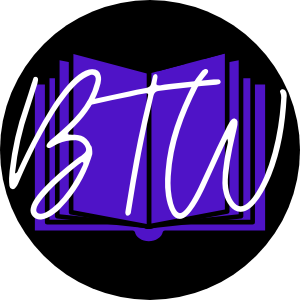Book Trigger Warnings is a website dedicated to providing content warnings for a plethora of novels, novellas, short stories, plays, and other pieces of literature. This site’s content comes from members of the community who create pages based on a format designed by the site runners, Jen and Rob. According to the site founders, finding trigger warnings for books used to be a difficult task and information was widely spread but not always accessible. They found themselves searching far and wide to locate content warnings for literature, as providing them is a relatively new practice. The site’s creation was the addressment of a need for a carefully constructed reading experience, in tune with the sensitivities of readers. The wiki was an easy solution to a tough problem at the intersection of literature, psychology, and technology: People need an easy way to find trigger warnings for books.
So how does this site work? The MediaWiki site relies on the user-generation of pages, detailing publication information and lists of trigger warnings, representation, tropes, and controversies. Upon making a page, users fill in each list to the best of their ability in hopes of providing explicit guidance to readers. Users can also edit and add new information to pre-existing pages to make them more comprehensive. All instructions are listed on the site’s home page, alongside some tutorials for beginners. As it stands currently, there are over 8,000 book pages on the site. These pages cross all genres, all formats, and all age groups, with more added every day to diversify the site’s portfolio. From a literature standpoint, this is a remarkable collection of content and proves that if you build it, readers will come.
There is much to be said about the value of a site like this, which allows readers to have a warning before taking on reading projects. But does it stop readers from reading, a form of self-censorship in the name of mental wellbeing? The site creators do not seem to think so. When asked about how they thought censorship connected to the site, Jen and Rob stated that the intention of making trigger warnings available is not to stop readers but was instead intended to prepare them. When readers go into novels unprepared for triggering content, they may find themselves caught off guard, leading to unnecessary stress, unease, and other negative responses. When a reader is surprised by this content, it may lead them to leave their book and never pick it up again. A reader, prepared by the contents of this site, can start reading while fortified against potential threats to their mental health and wellbeing. This preparation allows for readers to keep reading and makes literature safer to maneuver. Readers can partially override their psychological reactions to triggering content when they are prepared to witness it and know the details and location of said content in the text. Jen and Rob also remark that using the site is entirely optional; no one is forced to check their reading for triggers and no books are given higher rankings based on their triggers or lack thereof.
The “Representation” feature that the site recently added helps to address the lack of diversity in literature. This feature allows for contributors to list important forms of representation, including race, sexuality, disability, and many others. Contributors can also add an asterisk to denote if the author is a member of the group represented. This way, readers can determine the quality of the representation and whether they feel comfortable reading a character written from the perspective of a person who has not lived that experience. This feature helps address the lack of diversity in literature by making representation searchable. Users can search for specifics on the site by entering phrases like “Black main character” or “lesbian side character” and all pages that match will come up in the results. The search feature allows users to find every example available on the wiki with commentary on the author’s relationship to the represented group and if that representation is done well or is a caricature requiring a trigger warning.
Book Trigger Warnings is of immense value due to the plethora of knowledge that it provides for readers. They can access trigger warnings to avoid the content they do not feel safe with or enjoy reading, find representation and own voices literature, and get a reader experience that is custom-made for them. This site keeps people reading and keeps people protected, and I would recommend it to all types of readers!
 Kelly Hayes
Kelly Hayes
Student Representative, Eastern Region, 2021-2022
Iota Omega Chapter
Franklin Pierce University, Rindge, NH
Sigma Tau Delta
Sigma Tau Delta, International English Honor Society, was founded in 1924 at Dakota Wesleyan University. The Society strives to
- Confer distinction for high achievement in English language and literature in undergraduate, graduate, and professional studies;
- Provide, through its local chapters, cultural stimulation on college campuses and promote interest in literature and the English language in surrounding communities;
- Foster all aspects of the discipline of English, including literature, language, and writing;
- Promote exemplary character and good fellowship among its members;
- Exhibit high standards of academic excellence; and
- Serve society by fostering literacy.
With over 900 active chapters located in the United States and abroad, there are more than 1,000 Faculty Advisors, and approximately 9,000 members inducted annually.
Sigma Tau Delta also recognizes the accomplishments of professional writers who have contributed to the fields of language and literature.
Sigma Tau Delta accepts submissions to our blog, WORDY by Nature, throughout the year from all membership categories (students, Advisors, and alumni). If you are interested in submitting a blog, please read the Suggested Guidelines on our website to check if your topic is a good fit and to verify your article is correctly formatted. Email any questions and all submissions to: submit@wordybynature.org.




Add Comment